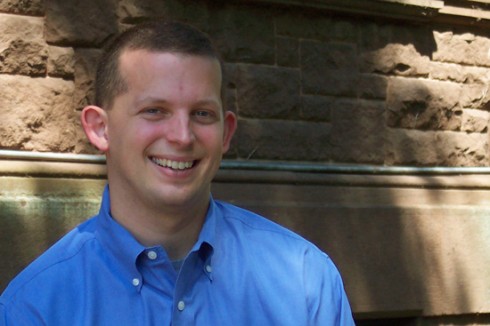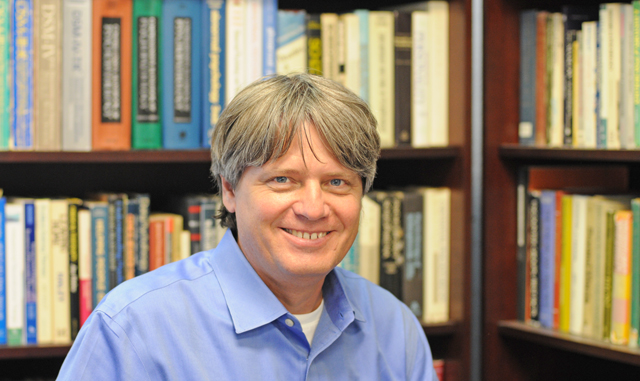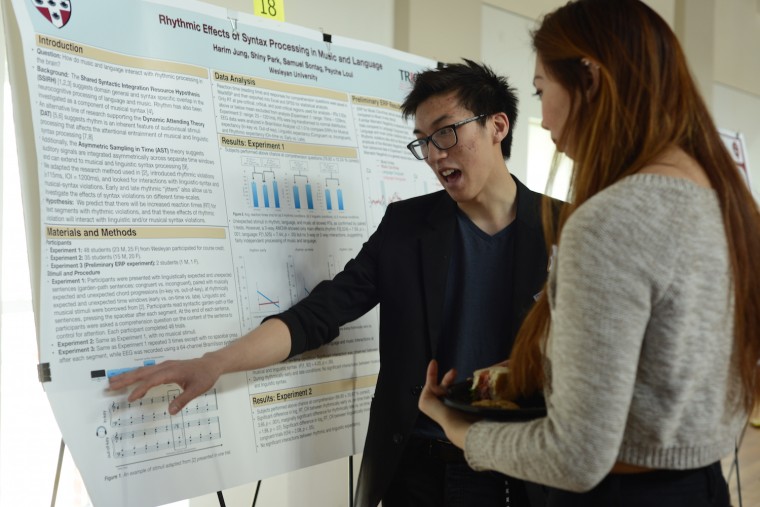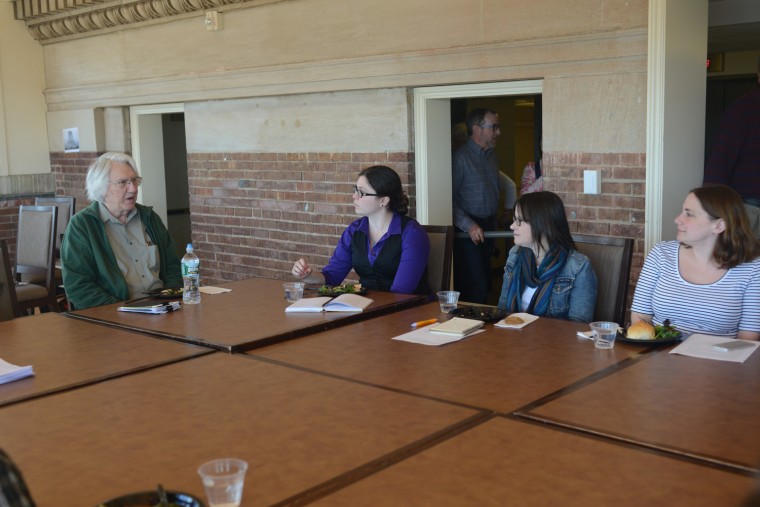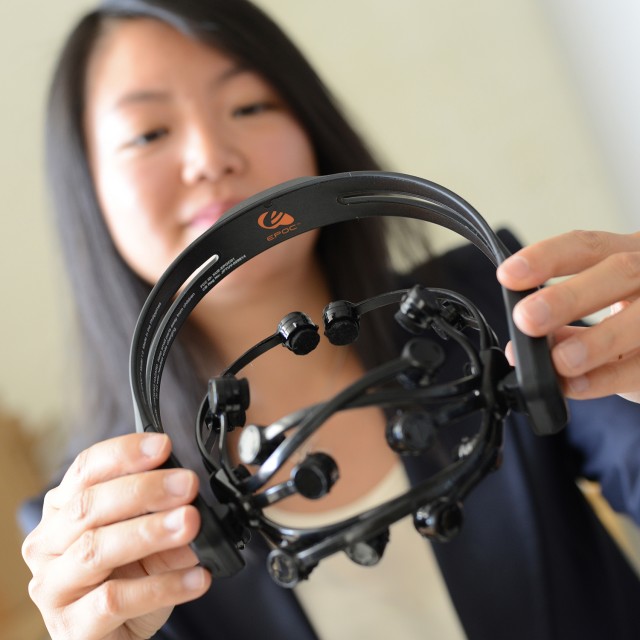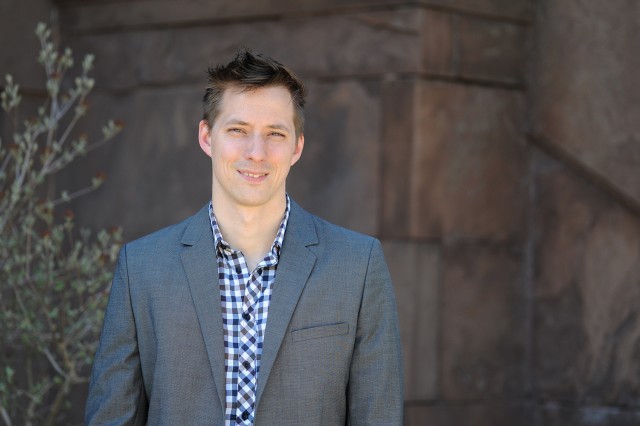On July 1, Associate Professor of Psychology Steven Stemler presented the results of a two-year study measuring creativity and citizenship in Connecticut's Higher Order Thinking (HOT) schools to an audience of faculty, staff and students in Judd Hall. The HOT schools are a collaborative of about 14 public schools in Connecticut that voluntarily commit to a philosophy of education, which emphasizes "teaching and learning in, about, and through the arts in a democratic setting," according to the Connecticut Department of Economic and Community Development Office of Culture and Tourism's website. About two years ago, the HOTs leadership team approached Wesleyan's Quantitative Analysis Center about conducting a study to assess…
Charles Sanislow, associate professor of psychology, associate professor of neuroscience and behavior, is the co-author of an article titled "Interactions of Borderline Personality Disorder and Anxiety Disorders Over 10 Years," published in the June issue of The Journal of Clinical Psychiatry. This report examines the relationship of borderline personality disorders (BPD), as defined by the DSM-IV (Diagnostic and Statistical Manual of Mental Disorders, 4th edition), to anxiety disorders using data on the reciprocal effects of improvement or worsening of BPD and anxiety disorders over the course of 10 years. Sanislow and his colleagues prospectively assessed borderline patients with DSM-IV–defined co-occurring generalized…
Psyche Loui, assistant professor of psychology, assistant professor of neuroscience and behavior, was awarded a $200,000 grant from the Imagination Institute's Advancing the Science of Imagination: Toward an "Imagination Quotient" initiative. She will use the grant for the first longitudinal neuroscience study on the development of aesthetic creativity through jazz improvisation. Loui's was one of 16 projects to receive funding, out of an initial pool of 251 who expressed interest. Learn more in this press release.
Charles Sanislow, associate professor of psychology, associate professor of neuroscience and behavior, is the co-author of a new paper published in the journal Personality Disorders: Theory, Research, and Treatment. The paper is titled "Personality Disorder Risk Factors for Suicide Attempts over 10 Years of Follow-Up." The findings in the paper are from the Collaborative Longitudinal Personality Disorders Study, funded by the National Institute of Mental Health (NIMH), on which Sanislow has been an investigator since it began in 1996.
On April 30, the Psychology Department held its annual poster session in Beckham Hall. More than 50 psychology and neuroscience and behavior majors presented research, and the event was attended by several hundred psychology majors. (All photos by Dat Vu '15.) (more…)
#THISISWHY On April 15, faculty and staff met to share their service- and project-based learning stories during an Academic (Technology) Roundtable lunch at the Allbritton Center for the Study of Public Life. A(T)R lunches are designed to promote conversation, cooperation and the sharing of information, ideas and resources among faculty members, librarians, graduate students and staff. Barbara Juhasz, director of service-learning, associate professor of psychology, associate professor of neuroscience and behavior, led the session, providing an overview of service-learning at Wesleyan as well as the variety of ways that service can be used as a pedagogical tool. Other speakers included Rob Rosenthal, director of…
Psyche Loui, assistant professor of psychology, assistant professor of neuroscience and behavior, was awarded a grant of $20,000 in March from the GRAMMY Foundation Grant Program to study a musical biofeedback-based intervention for epilepsy. The grant will fund three different studies that combine EEG sonification, translational research and basic neuroscience for this type of intervention. Loui anticipates that the results will apply music technology as a possible solution to a neurological disorder affecting 65 million people worldwide. Loui noted that for the approximately one-third of patients with epilepsy who don’t respond well to seizure medication, (more…)
Wesleyan was strongly represented by faculty, undergraduates and alumni at the Biennial Meeting of the Society for Research in Child Development, the major conference in the field. The meeting was held in Philadelphia, Pa. March 19-21. Members of the Cognitive Development Labs, co-directed by Associate Professor of Psychology Anna Shusterman and Associate Professor of Psychology Hilary Barth, presented research at the conference. Former lab coordinator Jessica Taggart presented work done with Jillian Roberts '15, current lab coordinator Lonnie Bass, and Barth titled, "Minimal group membership and children's ideas of equality." This is Roberts' senior thesis project. Andrew Ribner '14 presented his senior thesis, "Preschool…
A paper co-authored by Lauren Feld '11 and Associate Professor of Psychology Anna Shusterman was recently published in the Journal of Adolescence. Titled, "Into the Pressure Cooker: Student Stress in College Preparatory High Schools," the paper was Feld's senior thesis at Wesleyan. The article will appear in Volume 41, June 2015 of the journal. It can be read online here. In the study, Feld and Shusterman assess stress and related behaviors in high-achieving high school students. Specifically, they explored symptoms, sleep and eating, attitudes and coping behaviors related to stress. They found that students reported high rates of physical and psychological correlates…
Mike Robinson, assistant professor of psychology, assistant professor of neuroscience and behavior, and his students are interested in what makes individuals react differently when they catch a whiff of freshly-baked brownies or another sugary treat. These Pavlovian cues associated with junk food can trigger cravings to eat and increase the amount of food consumed. People who are more susceptible to the motivational effects of these cues may have a higher risk for over consuming readily available junk food and becoming obese. Furthermore, the overconsumption of junk food may itself heighten attraction to food cues. But what causes some people to…
A chapter titled "Research Domain Criteria (RDoC)" by Charles Sanislow, associate professor of psychology, associate professor of neuroscience and behavior, was published in the Encyclopedia of Clinical Psychology in January. Kevin Quinn of the National Institute of Mental Health (NIMH) and Isaiah Sypher ’13 co-authored the chapter. Sypher worked in Sanislow’s lab at Wesleyan and then went on to a research position at the NIMH Intramural Program in Affective Neuroscience. He is currently in the process of applying to clinical science programs in psychology. Sanislow and Quinn are both charter members of the NIMH Working Group for the RDoC, a project that is developing…
Robinson's new study explains why it can be so hard to resist alcohol, drugs or sweet treats


